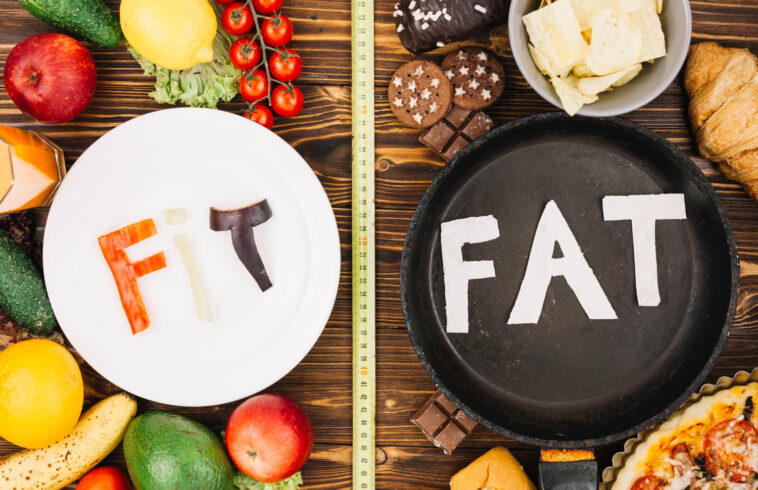If there’s one factor I’ve discovered about losing a few pounds, it’s that restriction and deprivation don’t work in the long term. The extra I informed myself, “You possibly can’t have that,” the extra I needed it. Over time, I discovered {that a} balanced method—one which allowed me to take pleasure in my favourite meals carefully—was far simpler and sustainable. On this publish, I’ll share the methods that helped me shed kilos with out feeling like I used to be sacrificing every little thing I beloved. Let’s dive right into a more healthy, happier technique to drop extra pounds.
Discover Your Why
Earlier than I began my weight reduction journey, I took a second to consider why I needed to drop extra pounds. It wasn’t nearly numbers on a scale—it was about feeling more healthy, having extra vitality, and bettering my self-confidence. Having a transparent objective helped me keep motivated, even on powerful days. I discovered that once I targeted on these greater causes, I used to be much less doubtless to surrender when issues received difficult.
Take a while to seek out your “why.” It may very well be to have extra vitality on your children, to really feel extra comfy in your pores and skin, or to scale back health dangers. No matter your motive, be certain that it resonates with you. When you will have a significant objective, the journey turns into much more fulfilling.
Eat Extra Entire Meals, Not Much less
Once I first began, I assumed losing a few pounds meant consuming much less. However as I researched and experimented, I noticed it wasn’t about consuming much less—it was about consuming extra of the fitting issues. Entire meals like greens, fruits, complete grains, lean proteins, and wholesome fat turned the inspiration of my meals.
- Fill Up on Fiber: Meals excessive in fiber, like leafy greens, beans, and complete grains, stored me feeling full longer and helped me keep away from pointless snacking.
- Lean Proteins for Satiety: Including lean proteins like hen, fish, and tofu helped me really feel glad after meals, decreasing my cravings for unhealthy snacks.
- Wholesome Fat for Taste: Avocado, nuts, seeds, and olive oil added taste and wholesome fat, making my meals extra pleasant.
As an alternative of specializing in what I couldn’t have, I targeted on what I may add to my weight loss program. This optimistic method made maintaining a healthy diet really feel like a deal with somewhat than a punishment.
Observe Portion Management
One of many easiest, best adjustments I made was to begin being attentive to portion sizes. I didn’t lower out my favourite meals—I simply discovered to take pleasure in them carefully. For instance, as a substitute of consuming a large bowl of pasta, I’d take pleasure in a smaller portion with a giant aspect of greens. This manner, I received to benefit from the flavors I beloved with out going overboard.
- Use Smaller Plates: I discovered that utilizing a smaller plate made me really feel like I used to be consuming extra, even with smaller parts. This small trick helped me really feel glad with much less meals.
- Be Aware: As an alternative of consuming in entrance of the TV, I attempted to be current and savor every chew. It made meals extra pleasant and helped me really feel full with much less.
Portion management turned a game-changer for me. I may take pleasure in all my favourite meals with out guilt, and I now not felt like I used to be lacking out.
Make Motion a A part of Your Routine
Train was one other space the place I struggled initially. I’d go laborious on the fitness center for every week, then burn out. Finally, I noticed that motion didn’t need to imply intense exercises each day. As an alternative, I targeted on discovering actions I genuinely loved, which helped me keep constant.
- Begin Small: I began by going for a stroll after dinner or doing a brief exercise at dwelling. As soon as I received into the behavior, it turned simpler so as to add extra exercise.
- Do What You Take pleasure in: I found that I beloved dancing, so I included dance exercises into my routine. Discovering an exercise I appeared ahead to made train enjoyable somewhat than a chore.
By specializing in motion I loved, I used to be in a position to make train a pure a part of my life somewhat than one thing I “had” to do. The extra lively I used to be, the higher I felt, which motivated me to maintain going.
Permit Your self Flexibility and Treats
One of many hardest issues about weight-reduction plan was feeling like I couldn’t have any of my favourite treats. However I discovered that being too restrictive solely led to cravings and, finally, overeating. So, I made the choice to permit myself treats carefully.
- Plan for Treats: If I knew I needed a dessert, I’d plan for it and revel in it guilt-free. Realizing I may have occasional treats helped me keep away from binging.
- Observe the 80/20 Rule: I attempted to eat wholesome, complete meals 80% of the time, and allowed myself flexibility for the remaining 20%. This steadiness stored me on monitor with out feeling disadvantaged.
Permitting myself occasional treats made an enormous distinction in my mindset. As an alternative of feeling restricted, I felt balanced and in management. I loved my meals, which made it simpler to stay to my wholesome habits in the long run.
Deal with Progress, Not Perfection
One of the crucial beneficial classes I discovered was that weight reduction is a journey, not a vacation spot. There have been days once I made decisions that didn’t align with my objectives, however I reminded myself that someday wouldn’t undo my progress. I targeted on consistency over perfection and stored shifting ahead.
- Embrace Slip-Ups: Once I had a setback, I didn’t beat myself up. I reminded myself that it’s regular and received again on monitor the subsequent day.
- Have a good time Small Wins: I made it some extent to have a good time every milestone, whether or not it was dropping a pound or becoming into previous garments. These small victories stored me motivated.
This mindset shift was key. By specializing in progress, I discovered to benefit from the journey somewhat than obsess over the top end result. Each small win motivated me to maintain going, and finally, these wins added as much as actual, lasting change.
Conclusion: Dropping Weight With out Deprivation
For me, losing a few pounds wasn’t about following a strict weight loss program or depriving myself of the issues I like. It was about discovering steadiness, making small adjustments, and permitting myself flexibility. By specializing in complete meals, aware parts, pleasant motion, and a optimistic mindset, I used to be in a position to attain my objectives with out feeling like I used to be lacking out on life.
For those who’re by yourself journey to drop extra pounds, keep in mind that it doesn’t need to be all or nothing. Begin with small, reasonable steps, and permit your self room to benefit from the course of. With persistence, consistency, and slightly self-compassion, you’ll be able to attain your objectives in a means that feels best for you.
FAQ (Incessantly Requested Questions)
- How can I drop extra pounds with out feeling disadvantaged? Deal with consuming complete meals, apply portion management, permit your self treats carefully, and revel in motion. Steadiness is essential to sustainable weight reduction.
- Is it okay to eat treats whereas attempting to drop extra pounds? Completely! Permitting your self occasional treats might help you keep on monitor and keep away from binging. Strive the 80/20 rule—eat wholesome 80% of the time, and go away room for treats 20% of the time.
- How do I keep motivated on my weight reduction journey? Discover your “why,” have a good time small victories, and deal with progress somewhat than perfection. Having a significant objective might help you keep motivated.
- Can I drop extra pounds with out intense exercises? Sure, any type of motion might help, whether or not it’s strolling, dancing, or yoga. An important factor is discovering an exercise you take pleasure in and might stick to.
- How do portion sizes have an effect on weight reduction? Controlling portion sizes lets you take pleasure in your favourite meals with out overeating, which may be important for losing a few pounds with out feeling restricted.
Bear in mind, your journey is exclusive. Embrace it with persistence, have a good time every milestone, and benefit from the technique of turning into a more healthy model of your self. You’ve received this!



